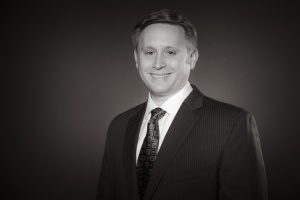110: What’s Your Financial IQ?: David Norris, M.D., M.B.A

Podcast: Download
Robert Kiyosaki told me that Rich Dad Poor Dad was written to be a promotional piece for his Cash Flow board game. He really did not write it with the intent of making money on the book itself. Well, that little promotional piece ended up being the number one best selling financial book of all time—not bad!
Countless people that I know have been touched by Rich Dad Poor Dad and credit it with transforming their lives including me. Yet Robert describes the work as an “accounting book”. And if you go back and read it, it is! Assets, liabilities, and cash flow. That’s what the book is all about.
The genius of Robert Kiyosaki is that he is able to explain accounting to the masses in a way that makes sense and is entertaining.You see, accounting isn’t that sexy but it is important. In fact, I believe that everyone should be required to take an accounting class in high school.
Why? Because accounting is the basis of business and it also should be the basis of personal finance. Everyone should see their own personal finances as a business. You have money going in, you have money going out and what you have left is profit.
Your personal financial statement should be viewed no differently than financial statements viewed by a business owner. You want to add assets and reduce liabilities and you want to make sure you have adequate cash flow. Makes sense right?
If you do that, you might actually start behaving differently. Let me give you an example. I have a friend here in Santa Barbara who is a famous house designer and real estate investor. I went to his new house a few weeks ago and it was full of very expensive furniture. He also collects vintage cars like old Ferraris.
Now you might think that all of this stuff is a waste of money. But…he actually buys these things because he wants to put them on his personal financial statements as assets.
Think about it. If you buy a brand new Maserati today it will cost you over a hundred thousand dollars and start depreciating the minute you drive it off the lot. My friend, on the other hand, bought his vintage Ferrari for 75K several years ago and now it’s worth 400K.
He could have gotten brand new furniture but he chose antiques that look great AND appreciate in value. Talk about a guy who understands accounting. Even his toys are real appreciating assets! He sort of got me thinking about buying that 1960s Porsche 356 that I’ve always loved.
Anyway, it’s just another way to view the world and one that is really quite valuable. Accounting is fundamental to financial literacy.
My guest on Wealth Formula Podcast this week understands this well. His name is David Norris and he’s a doctor with an MBA who has made it his mission to teach others financial literacy.
Make sure to listen to the show!
David Norris attended college but didn’t take any business classes. Instead, he focused on the science classes he thought he needed for medical school. Then, when he was in medical school, he would ask about the business aspects of healthcare and was told he would learn about that in residency. During his residency, the business of medicine was never brought up, and when he asked about it, he was told he would figure it out after he graduated. He suspected he was told these things because his attendings and professors might not know the answers.
Then he entered private practice where he was handed income statements and balances. Numbers were tossed at him, and others assumed he knew what was going on. At first, he didn’t really grasp what the reports were telling him. He tried to fake it, but his conscience got a hold of him. He was responsible for the income of over seventy families. He needed to accept that responsibility and do his best to serve them. So he went back to school. This time it was to raise his business intelligence by earning an MBA.
Shownotes:
[00:07] Introduction
[10:03] Buck introduces David Norris
[10:37] David’s story
[13:04] Help will always be given to those who ask for it
[23:54] Investing requires basic financial literacy
[25:59] Stay away from what complexity
[27:54] David’s book and course
[30:29] Learn to negotiate with David
[36:55] Outro
 Send Buck a voice message!
Send Buck a voice message!




